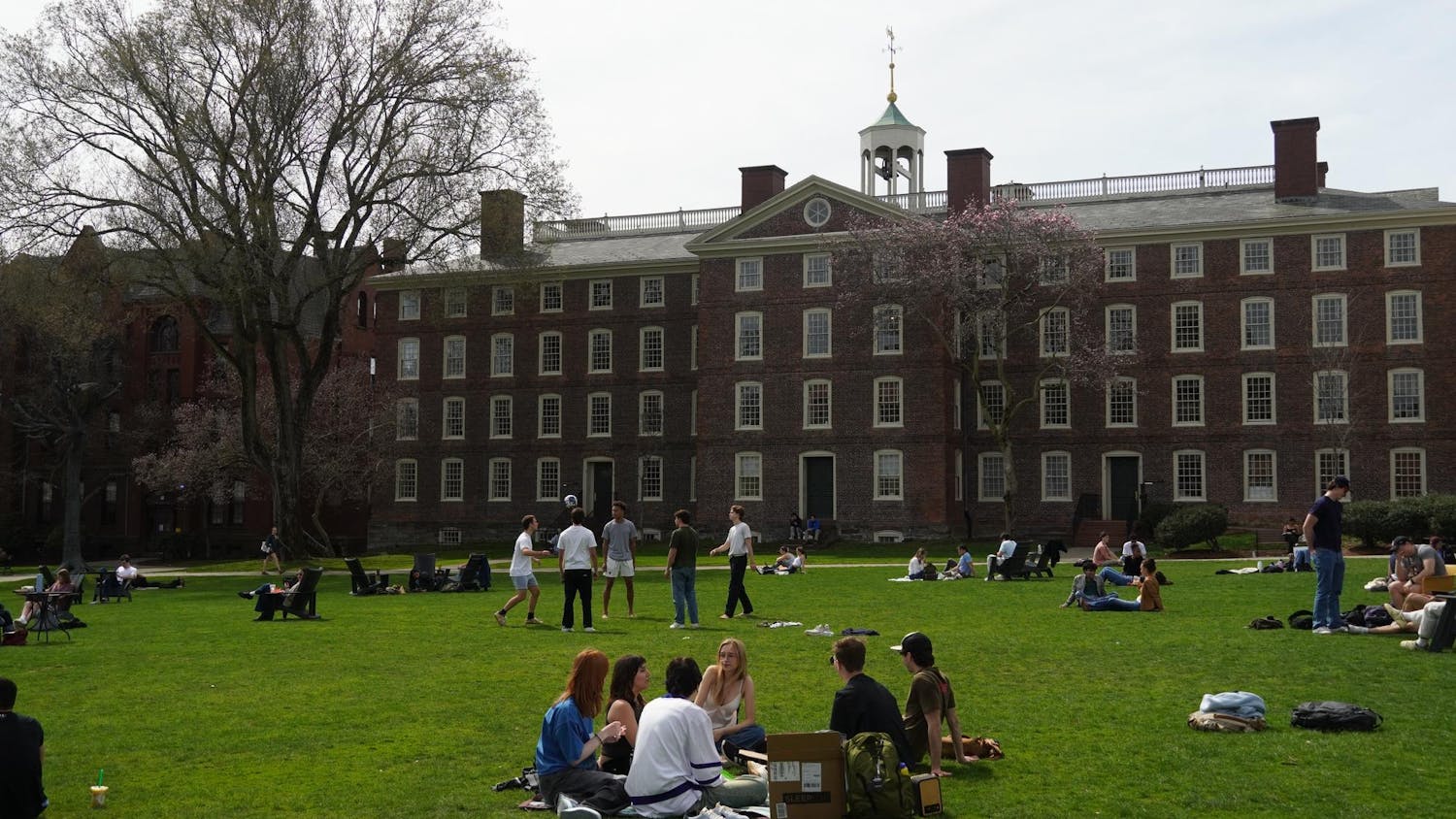A brilliant intellect, witty sense of humor and devotion to teaching and mentorship will mark the legacy of Professor Emeritus of Economics George Borts, who passed away Friday at the age of 86.
Borts retired in the fall after 63 years of teaching at the University, which he called a “fruitful” experience in an interview with The Herald after his retirement.
“It’s a loss for the University,” said Robert Serrano, chair of the economics department. “We’ll all miss him.”
“He was surrounded by his family for the last week of his life. It was very peaceful,” said David Borts ’74, Borts’ son.
“We’ll try to live up to his legacy, which is huge,” David Borts said. “It’s a lot to live up to.”
An ‘unusual range’
Before coming to Brown as an assistant professor in 1950, Borts completed his graduate studies at the University of Chicago under famed economists Milton Friedman and Arnold Zellner.
Borts was influential in bringing the Chicago tradition of econometrics to the University, “even though he was too modest to brag about his Chicago background,” said Marvin Goodfriend PhD’77, a professor of economics at Carnegie Mellon University who was one of Borts’ students and thesis advisees.
Borts had an “unusual range” of knowledge extending far beyond econometrics, encompassing monetary economics and price theory, Goodfriend said. “People are much more specialized today.”
Borts excelled at applying theoretical concepts to real-world situations, offering courses such as ECON 1550: “International Finance,” which carried a “fabulous” reputation, said Elizabeth Fuerbacher ’13.5, a former Herald opinions columnist.
“Professor Borts’ class has really distinguished itself in that respect,” Fuerbacher said. “His material was so applicable and practical, even though there was a substantive theoretical underpinning.”
“He was, regardless of whether you wandered off into international finance, a very keen economist,” said Rakesh Kochhar PhD’81, associate director of research for the Pew Center’s Hispanic Trends Project and former PhD student and thesis advisee of Borts. “There wasn’t anything under the sun in economics that he could not give you insight on.”
When David Borts was growing up, the Borts household was constantly visited by an array of people from different fields and with different viewpoints, he said, adding that his father’s “humble nature” allowed him to interact with anyone. “He never reached a point in his career where he couldn’t listen to ideas he disagreed with.”
Borts held a number of positions outside the University: He was a research associate at the National Bureau of Economic Research, a two-time visiting research fellow at the London School of Economics, a visiting professor of economics at Hokkaido University in Sapporo, Japan, and managing editor of the American Economic Review, President Christina Paxson wrote in a community-wide email Sunday.
Teaching and mentoring
Former undergraduate and doctoral students also recalled Borts’ outstanding commitment to teaching and mentoring.
As a Brown faculty member, Borts mentored dozens of renowned alums, including Chair of the Federal Reserve Janet Yellen ’67.
“I use Professor Borts and his unwavering dedication as a teacher as a standard for other professors at Brown,” Fuerbacher said, “He was there not just for research, but for being dedicated to students. He was exactly what a professor should be.”
Borts was a “tremendous thesis adviser” because he urged students to achieve their potential, Goodfriend said. “I don’t know if I would have gotten my PhD without having him as an adviser, because I needed to have a push, and he was that person.”
During office hours, Borts spent hours with students, working through problems and providing feedback, said Kenneth Kopecky PhD’70, former chair of the economics department at Temple University and former PhD student of Borts.
“Whenever you would talk with George, it was a learning experience, sometimes as much for him as for his student,” Kopecky said. “In my own academic career, I’ve always tried to emulate him in whatever I was teaching.”
In an email to Borts’ family that was read at Monday’s memorial service, Yellen praised his teaching abilities and influence on her life. Her decision to switch concentrations from psychology to economics was “entirely his fault,” Yellen wrote in the email, Paxson said at Tuesday’s faculty meeting.
Beginning in 2010, David Borts worked with his father and several undergraduates to analyze economic and immigration reform. “The interplay and exchange of ideas was incredible,” he said, adding that his father was completely dedicated to helping his students learn and grow both academically and on a personal level.
Borts’ love of mentoring also inspired him to become a peewee soccer coach in the 1960s, his son said.
“He didn’t play it. He read books about it, trying to figure it out,” David Borts said.
‘A big laugh’
One of Borts’ most striking qualities was his “very insightful sense of humor,” Serrano said.
Borts often entertained students by interrupting guest speakers and accurately predicting the rest of their lectures, Kochhar said. “Students used to get a big laugh out of it.”
After economics department faculty-student softball games in the 1970s, Borts used to invite players over to his house, treating them to amusing stories, Kochhar added.
On the first day of “International Finance” last fall, Borts cracked a joke about international systems that made the entire classroom erupt in laughter, Fuerbacher recalled.
“The whole economics department will remember Professor Borts not only as a scholar, but also as one of the funniest people they have ever met,” she said.
ADVERTISEMENT




